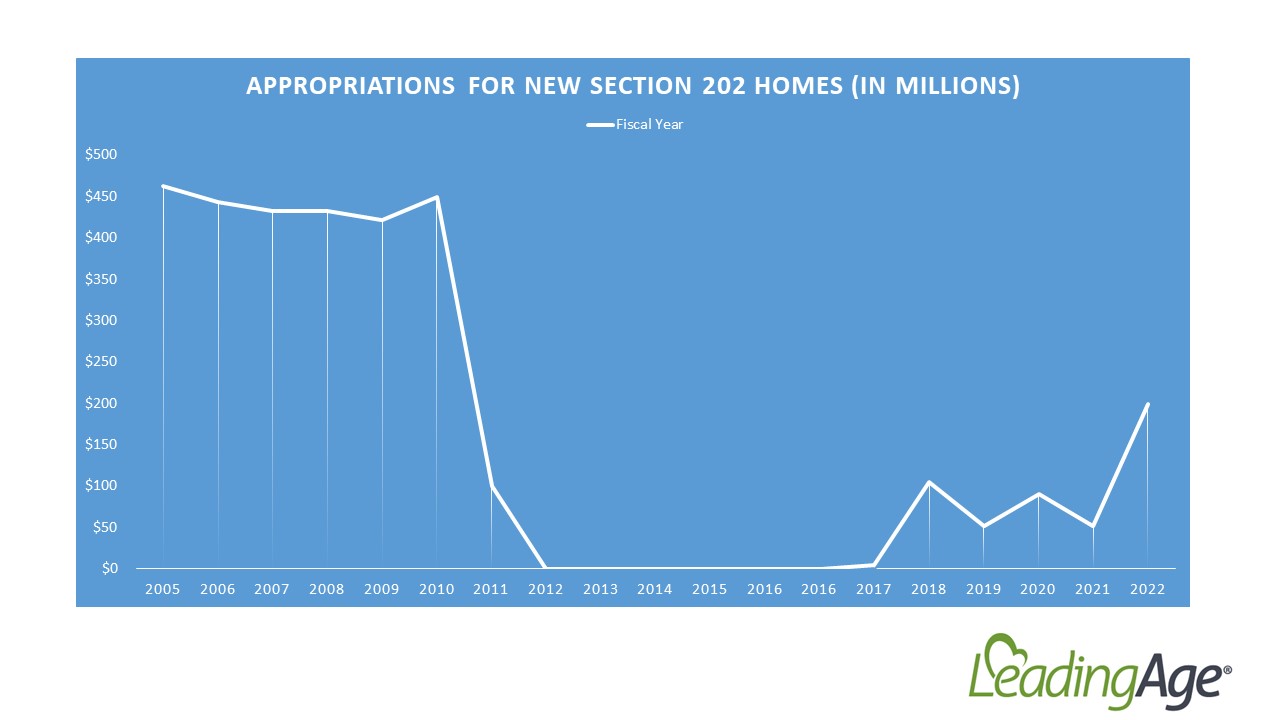39 Senators Call for Greatly Expanded 202 Housing Program
On May 11, Senator Robert Menendez (D-NJ) transmitted his sign-on letter to Senate Appropriations Subcommittee on Transportation, Housing and Urban Development Chair Brian Schatz (D-HI) and Ranking Member Susan Collins (R-ME) with 39 Senators joining in the letter.
The letter seeks “full funding for contract renewals for the Section 202 Housing for the Elderly program and an additional $600 million for capital advances and operating subsidies for new 202 homes to keep up with existing and increasing need” for fiscal year 2023 funding.
LeadingAge is deeply appreciative of Senator Menendez’ championing of this letter and of the 39 Senate offices who joined it. Affordable senior housing stakeholders urged their Senators to join the letter over the last few weeks, resulting in six more sign-ons than a similar letter last year received.
“Section 202 provides a sensible and necessary approach to meeting our nation’s growing affordable housing needs for seniors, and it is the only federally funded program expressly aimed at doing so. As HUD’s most recent Worst Case Housing Needs Report finds, 2.24 million very low-income elderly households are paying more than 50 percent of their income in rent, an increase of 68% since 2009. Moreover, a 2021 report from the Urban Institute, The Future of Headship and Homeownership, predicts there will be 13.8 million new older adult households between 2020 and 2040, and 40% (5.5 million) of these new older adult households will be renter households,” the letter says.
“By leveraging other funding sources, combining affordable housing with access to supportive services, and focusing on the most vulnerable segments of the population, the Section 202 program helps more seniors to live independently and age in place. To date, Section 202 has helped produce nearly 400,000 homes for low-income seniors. We believe that continued investment in low-income affordable housing for older adults is both cost-effective and critical to ensuring seniors can live in supportive, decent, and affordable housing,” the letter says.
In 2010 and earlier, Congress regularly provided $400 – $500 million a year for new Section 202 homes. The program’s funding for new Section 202 homes went down to zero after that and its revival since 2017 has not yet reached its prior funding levels, as the chart below shows. LeadingAge is urging Congress to provide $600 million for new capital advances and operating subsidies for about 6,200 new Section 202 homes in FY23.


Most Recommended
October 15, 2025
 Shutdown Week Three: Impact of Ongoing Closure on Affordable Housing
Shutdown Week Three: Impact of Ongoing Closure on Affordable Housing
February 24, 2026
Fiscal Year (FY) Funding 2026
October 07, 2025
Immigrant Workforce Matching Program Brings Workforce Relief
Recently Added
March 04, 2026
 Colleagues on the Move, March 4, 2026
Colleagues on the Move, March 4, 2026
March 03, 2026
DOL Proposes New Worker Classification Rule
March 03, 2026



